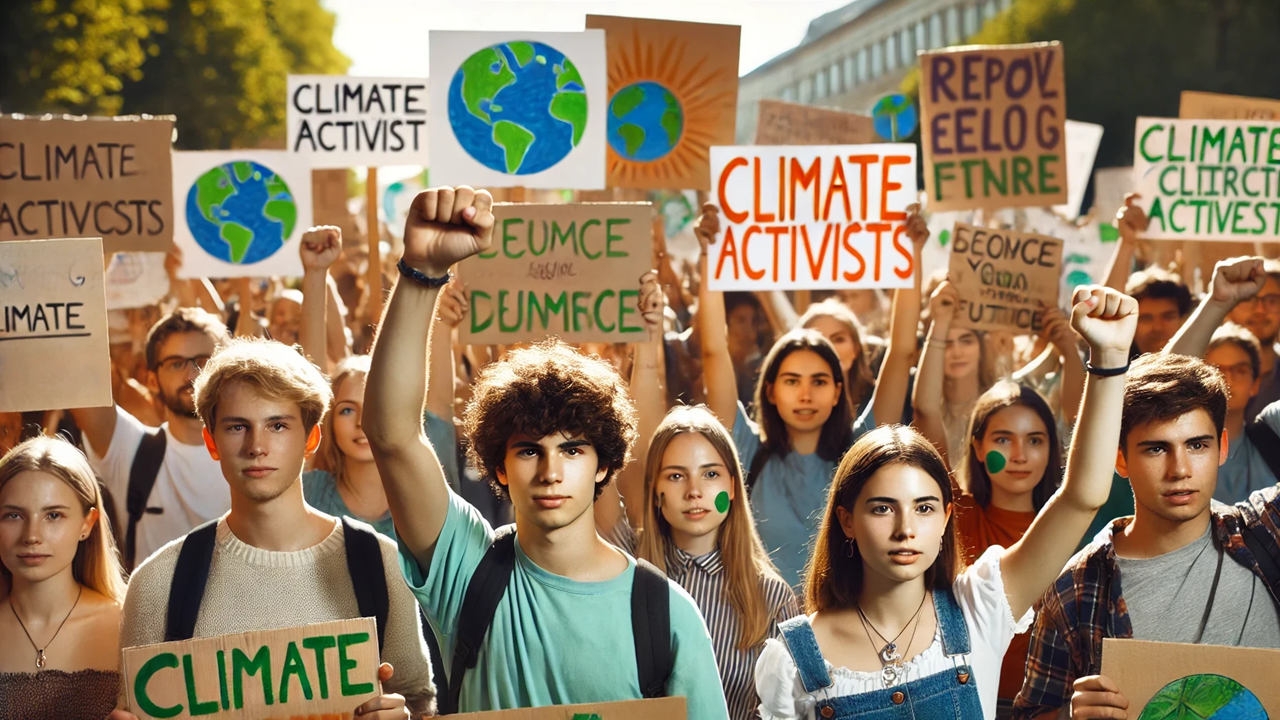Youth Power: Leading the Charge Against Climate Change
The report "Emerging Horizons: Youth Insights on Climate Change and Breakthrough Solutions" by UNICEF Innocenti and UNDP underscores the critical role of youth in driving climate action. It highlights the importance of youth foresight, structured future thinking through the Three Horizons approach, and identifies key areas for further research to advance community-centered governance, equitable economic models, and eco-literacy.

Power of Youth in Climate Action
In a world grappling with the existential threat of climate change, young people are emerging as pivotal agents of change. Despite growing up in a culture that often promotes pollution, they remain deeply committed to creating a sustainable future. The United Nations Secretary-General's declaration of the climate crisis as an existential threat has galvanized many young individuals to take action through protests, negotiations, innovations, and leadership. The recently released report by UNICEF Innocenti and the UNDP, "Emerging Horizons: Youth Insights on Climate Change and Breakthrough Solutions," underscores the critical role of youth in driving climate action.
The Importance of Youth Foresight
Youth foresight is about integrating the perspectives and needs of young people into systematic future planning and decision-making processes. Historically, young people have driven significant social changes, and their involvement in foresight and decision-making is crucial. This approach ensures that their expertise, experiences, and perspectives are valued, leading to high-quality research and effective platforms for global discourse and community change.
The Youth4Climate event in Rome in October 2023, co-led by Italy and the UNDP, exemplifies this approach. The event brought together 100 young climate innovators from 63 countries, focusing on youth-led climate breakthroughs. This report synthesizes the outcomes of a participatory foresight workshop, employing the Three Horizons approach to map out patterns of change, shared visions for the future, and high-potential innovations.
Three Horizons Approach: Mapping the Future
The Three Horizons approach is a tool for structured future thinking, identifying three concurrent horizons: the current system (Horizon 1), the vision of a better future (Horizon 3), and the area of innovation and disruption (Horizon 2). This method helps recognize potential transformations and strategize on achieving a desired future while managing present challenges.
Business as Usual: Participants identified that traditional governance and policymaking approaches often lead to reactive policies that fail to address community needs. There is a significant lack of youth engagement and comprehensive planning in sectors like energy, food and agriculture, education, and urban sustainability. Economic motivations frequently overshadow long-term sustainability goals, resulting in limited investment in renewable energy technologies and climate education. The need for greater eco-literacy and community engagement was emphasized.
Visions of the Future: In envisioning a future characterized by sustainability, eco-friendliness, and equitable development, participants highlighted the importance of diverse renewable energy sources, climate education integrating indigenous knowledge, and sustainable urban practices. The vision included equitable market systems, land ownership for women, and justice for communities impacted by energy policies. Innovation and technology, community-driven initiatives, and economic incentives promoting sustainability were seen as crucial elements of this preferred future.
Innovation and Disruption: Young people identified innovations and disruptions that could drive the transition from Horizon 1 to Horizon 3. These include the integration of traditional practices with modern technologies, renewable energy initiatives, and digitalization of energy systems and urban planning. They emphasized the need for equitable designs to prevent maintaining the old systems. Community engagement and peer-to-peer initiatives were seen as powerful drivers of change.
Key Areas for Further Research
The report identifies three main research areas to explore further.
Firstly, the transformation of governance and policymaking through community-centric approaches. This involves investigating how bottom-up, community-centered governance can enhance policy effectiveness in urban sustainability, energy, and agriculture. It also explores the integration of youth perspectives and digital tools in policy formulation and assesses the role of local community engagements and indigenous knowledge in reshaping governance.
Secondly, embedding equity in economic models for renewable energy transition is crucial. This includes reorienting economic models to embed equity in renewable energy transitions, balancing traditional economic motivations with sustainability and societal welfare, and promoting equitable market systems and land ownership, especially for marginalized groups.
Lastly, advancing eco-literacy as a catalyst for transformative change is essential. Enhancing eco-literacy across all societal levels to drive environmental change, integrating indigenous insights and digital tools in educational curricula, and promoting community engagement in agriculture and energy sectors to foster eco-literacy are key components.
Call to Action
The youth foresight process has highlighted the transformative potential of community-centered governance, equitable economic frameworks, and enhanced eco-literacy. Integrating these elements into a cohesive strategy is essential for addressing the climate crisis. Active engagement of young people in policy and decision-making processes is crucial for crafting forward-thinking solutions grounded in reality. The insights from the workshop will inform the program of the 2024 Leading Minds Conference on Climate Action, focusing on overcoming barriers to solving the climate crisis.
- FIRST PUBLISHED IN:
- Devdiscourse
ALSO READ
How Climate Change Affects Your Medications: What You Need to Know
India Reports Methane-Mitigating Bacteria, Offering New Hope for Climate Change Mitigation
Cryptocurrency and Sustainability: Bitcoin's Impact on Clean Water and Carbon Emissions
Australia and U.S. to Tackle Climate Change and Strategic Competition at AUSMIN Talks
Empowering Dialogues: AsiaOne’s World Sustainability Round Table Meet in London










